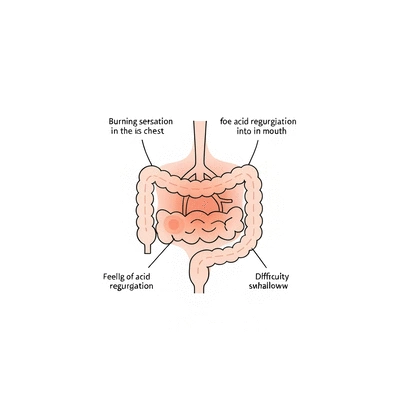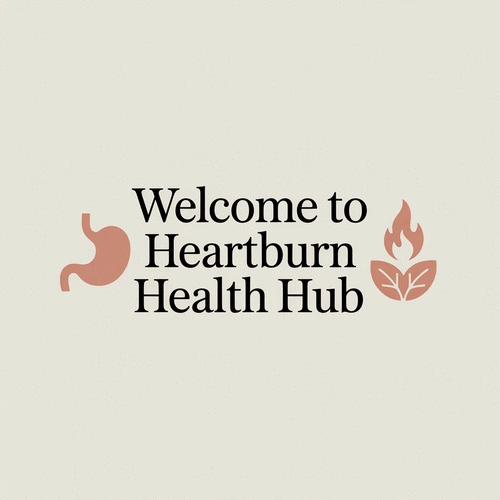Are you aware that the connection between stress, anxiety, and heartburn is more than just a passing thought? Understanding this link can empower you to take control of your digestive health and improve your overall well-being. Explore these insights to discover how to manage your symptoms effectively.
What You Will Learn
- Stress triggers increased gastric acid production, which can lead to heartburn.
- Muscle tension from stress can cause discomfort in the stomach area, exacerbating heartburn symptoms.
- Dietary choices under stress often include comfort foods that can worsen heartburn, such as spicy or fatty options.
- The cycle of anxiety can make heartburn feel more intense and disrupt sleep, increasing stress levels.
- Recognizing heartburn symptoms, like burning sensation and regurgitation, is crucial for effective management.
- Consult a healthcare professional if experiencing frequent heartburn or difficulty swallowing, as it may indicate a more serious condition.
- A holistic approach, addressing both physical and emotional health, is essential in managing heartburn linked to stress and anxiety.
The Vicious Cycle: Stress, Anxiety, and Heartburn
Understanding how stress and anxiety create a difficult loop with heartburn is key to managing symptoms effectively.
Stress & Anxiety Rise
Increased body response, higher acid production, muscle tension.
Heartburn Symptoms Intensify
Burning, regurgitation, dysphagia become more noticeable and frequent.
Anxiety Increases Due to Heartburn
Fear of recurrence, disrupted sleep, heightened physical awareness.
Worsening Stress & Heartburn
The cycle continues, making both conditions harder to manage.
Understanding the Connection Between Stress, Anxiety, and Heartburn
Have you ever noticed that when you're feeling stressed or anxious, heartburn can flare up? It’s a common experience for many, and understanding the connection between stress, anxiety, and heartburn is key to managing these uncomfortable symptoms. Stress can trigger a whole range of physiological responses in the body, leading to heartburn.
One significant player in this process is the vagus nerve, which controls many functions of the digestive system. When we’re stressed, the vagus nerve can become overactive, leading to increased gastric acid production. Hormonal changes that accompany stress can also play a role, as they influence how our body processes food and manages acid.

How Stress and Anxiety Trigger Heartburn Symptoms
Understanding how stress and anxiety manifest in our bodies is essential. Here are some key ways they can contribute to heartburn:
- Increased acid production: Stress can lead to higher levels of stomach acid, which might find its way into the esophagus.
- Muscle tension: Stress can tighten muscles in the stomach area, causing discomfort and heartburn.
- Dietary changes: Under stress, we might turn to comfort foods, which could include spicy or fatty options that exacerbate heartburn.
It’s important to recognize these triggers and address them. Keeping a journal of your stress levels and heartburn symptoms can help pinpoint patterns and potential solutions!
The Vicious Cycle: Anxiety and Heartburn Reinforcing Each Other
Stress and heartburn often create a vicious cycle. When heartburn strikes, it can heighten feelings of anxiety, leading to increased stress levels. This can, in turn, worsen the heartburn symptoms. It’s crucial to break this cycle for better health!
Here are a few insights on how anxiety and heartburn reinforce each other:
- Anxiety can make you more aware of physical sensations, causing you to perceive heartburn more intensely.
- Heartburn can disrupt sleep, which may increase anxiety levels.
- This cycle can lead to a heightened state of stress, creating a loop that is difficult to escape.
As someone who has navigated this landscape as a gastroenterologist, I can assure you that addressing both stress and heartburn is pivotal in regaining control over your health. By understanding this connection, you can take proactive steps to alleviate both conditions!
Identifying Heartburn Symptoms and Differentiating from Other Conditions
Heartburn isn’t just a simple discomfort; it can manifest in various ways. Recognizing the symptoms is crucial to effective management. Let’s take a closer look at common symptoms of stress-induced heartburn and how they differ from other gastrointestinal issues.

Common Symptoms of Stress-Induced Heartburn
When you experience heartburn, you might notice some specific symptoms. Here are the most common signs:
- Burning sensation: Usually felt in the chest or throat after eating, especially when lying down.
- Regurgitation: The feeling of acid backing up into your throat or mouth.
- Dysphagia: Difficulty swallowing can also occur, often feeling like food is stuck.
It’s worth noting that these symptoms can sometimes overlap with other issues, such as gastroesophageal reflux disease (GERD). If you notice these symptoms regularly, it’s vital to keep track and consult with a healthcare professional!
When to Seek Medical Advice for Heartburn and GERD
It’s key to know when to seek help for heartburn. Here are some scenarios that warrant professional advice:
- Experiencing heartburn more than twice a week
- Heartburn that interferes with daily activities
- Unexplained weight loss or difficulty swallowing
Understanding these differences can empower you to take the right steps toward relief. At Heartburn Health Hub, we emphasize the importance of distinguishing between functional heartburn and GERD to tailor the best management plan for you!
We Want to Hear From You!
Have you noticed a connection between your stress levels and heartburn symptoms? Share your thoughts below:
Frequently Asked Questions About Stress, Anxiety, and Heartburn
Recap: How to Manage Heartburn Linked to Stress and Anxiety
Managing heartburn, especially when it’s linked to stress and anxiety, involves a multifaceted approach. Throughout this article, we’ve explored various strategies aimed at alleviating symptoms and addressing the root causes of heartburn. Key strategies include stress management techniques, dietary modifications, and understanding the triggers that can exacerbate your discomfort. By implementing these tactics, you can take a proactive step in your journey toward relief.
Remember to consider both your physical and emotional health; addressing one without the other may not yield the best results. A holistic approach is essential for effective management.
Encouragement to Start Your Journey Towards Relief
Are you ready to start your journey toward relief? I encourage you to begin incorporating some of the techniques we discussed, such as mindfulness practices and dietary changes. If your symptoms persist despite these efforts, don’t hesitate to seek professional help. Remember, addressing both stress and heartburn is vital for achieving holistic health and improving your quality of life.
Taking that first step might feel overwhelming, but you're not alone in this. At Heartburn Health Hub, we’re here to support you every step of the way!
Further Resources and Tools for Ongoing Support
To aid your journey, consider utilizing some helpful resources and tools. Here’s a list of suggestions:
- Symptom Tracking Apps: These can help you log your heartburn episodes and identify potential triggers.
- Meditation and Mindfulness Apps: Apps like Headspace or Calm offer guided sessions that can help reduce stress.
- Reading Materials: Books like "The Mindful Way Through Anxiety" can provide deeper insights into managing stress.
Incorporating these tools into your daily routine can provide additional support as you work to manage your heartburn and stress levels.
Support Systems: The Importance of Connecting with Healthcare Providers and Support Groups
Don’t underestimate the value of connecting with healthcare providers and support groups. Engaging with professionals can provide you with personalized guidance tailored to your specific needs. Here are some points to consider:
- Regular Check-Ups: Schedule appointments with your gastroenterologist to monitor your heartburn.
- Support Groups: Consider joining local or online groups where you can share experiences and tips with others facing similar challenges.
- Therapists or Counselors: A mental health professional can help address anxiety and stress which may be contributing to your symptoms.
Connecting with others who understand your situation can provide both emotional support and valuable resources. Remember, you don’t have to navigate this journey alone—there are plenty of people and resources ready to help!
Recap of Key Points
Here is a quick recap of the important points discussed in the article:
- Stress and anxiety can trigger heartburn by increasing acid production and causing muscle tension.
- Recognizing heartburn symptoms, such as burning sensation and regurgitation, is crucial for effective management.
- Managing stress through techniques like mindfulness and dietary changes can help alleviate heartburn symptoms.
- It's important to seek medical advice if experiencing frequent heartburn or additional concerning symptoms.
- Building a support system, including healthcare providers and support groups, can provide valuable resources and emotional help.










